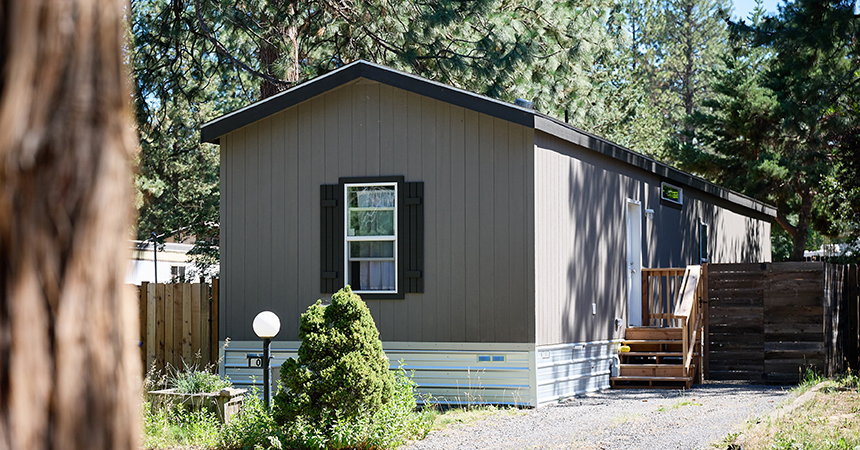
Manufactured homes represent an essential source of affordable housing in the United States. But savings from lower mortgage or rent can be wiped out when energy inefficiencies lead to higher energy costs or health and safety hazards. This is especially true for manufactured homes built before 1995, when federal energy efficiency standards were lower.
In Oregon, more than half of all manufactured homes fall into this minimally regulated, highly inefficient category. About half of manufactured home residents have low incomes, meaning this creates a significant burden for some of the most vulnerable members of our communities.
Against this backdrop, the American Council for an Energy-Efficient Economy (ACEEE) recently published a series of topic briefs designed to educate states and utilities on how they can help upgrade manufactured homes to lower energy bills and improve health and safety.
“Successful programs invest in building internal knowledge and expertise on manufactured housing, maintaining strong partnerships across housing and energy offices, and minimizing upfront costs for those most in need of home upgrades,” according to ACEEE.
The briefs detail recommendations for repairs and upgrades including adding insulation, sealing ducts, installing LED lighting systems and replacing mechanical systems. They also provide insights on assessing if the costs of retrofitting outweigh the benefits on older homes and when replacement programs may be the best solution for residents.
In a series of case studies, ACEEE highlights tangible impacts of current state- and utility-run assistance programs, including Energy Trust’s Manufactured Home Replacement Program.
That program began as a pilot in 2018 and received approval from the Oregon Public Utility Commission for permanent program status in 2021. It offers incentives up to $16,000 to income-qualified residents looking to replace their pre-1995 manufactured home with a new, energy-efficient one.
Additional funding is available through partner agencies including Oregon Housing and Community Services. Together, these resources have enabled Oregon residents to achieve their home ownership goals and improve their quality of life.
“The Energy Trust of Oregon incentive program complements existing state and nonprofit replacement programs. Utility efficiency programs are well positioned to incentivize residents to purchase new, more efficient homes…,” ACEEE concluded.
Learn more about manufactured home replacement support from Energy Trust.
